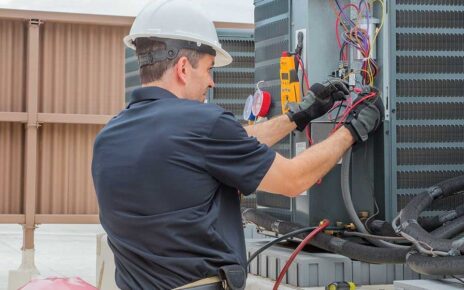As a property owner, it’s essential to maintain and upgrade your building to ensure its longevity, safety, and value. Conducting a thorough building inspection is the best way to identify potential issues and plan for future improvements. A building inspection comprehensively examines a property’s condition, focusing on its structural integrity, safety, and overall functionality. During an inspection, a qualified professional assesses various aspects of the building, including:
- Foundation and structural components
- Roof and exterior walls
- Plumbing and electrical systems
- Heating, ventilation, and air conditioning (HVAC) systems
- Interior features and finishes
The inspector will document their findings in a detailed report, highlighting any defects, potential hazards, or areas that require attention. This report serves as a valuable tool for property owners, helping them understand the current state of their building and plan for necessary upgrades.
Identifying immediate concerns
The primary benefit of a building inspection is its ability to uncover immediate concerns that may pose safety risks or lead to more significant problems.
- Leaks in the roof or plumbing system
- Electrical hazards, such as outdated wiring or overloaded circuits
- Structural issues, like foundation cracks or deteriorating support beams
- Mold growth or water damage
By addressing these issues promptly, you prevent further damage to your property and ensure the safety of its occupants. Additionally, catching problems early often results in more cost-effective repairs than dealing with advanced deterioration.
Planning for energy efficiency upgrades
A building inspection also provides valuable insights into your property’s energy efficiency. Inspectors assess the condition and performance of your building’s insulation, windows, and HVAC systems, identifying areas where improvements lead to significant energy savings.
- Adding or replacing insulation in walls, attics, and crawl spaces
- Installing energy-efficient windows and doors
- Upgrading to a more efficient HVAC system
- Implementing smart thermostats and lighting controls
Investing in energy efficiency upgrades reduces your building’s operating costs, improves occupants’ comfort, and potentially increases your property’s value.
Budgeting for long-term maintenance
- Identifying immediate concerns and energy efficiency opportunities, a building inspection helps you develop a long-term maintenance budget. The inspector’s report will provide a comprehensive overview of your property’s condition, allowing you to anticipate future repair and replacement needs useful reference for building inspections in Sydney.
- For example, if your roof is nearing the end of its lifespan, the inspector may recommend planning for a replacement within the next few years. Similarly, if your HVAC system shows signs of wear, you budget for a potential upgrade or replacement.
- By proactively planning for these long-term maintenance items, you spread out the costs over time and avoid unexpected expenses that could strain your budget.
Enhancing property value
Regularly conduct building inspections and address identified issues to maintain and enhance your property’s value. A well-maintained building with up-to-date systems and features is more attractive to potential buyers or tenants, demonstrating a commitment to safety, comfort, and efficiency. Moreover, by documenting your property’s condition through inspection reports and keeping records of upgrades and repairs, you provide evidence of your building’s value when it comes time to sell or refinance.
When selecting an inspector, inquire about their experience with properties similar to yours, their inspection process and the depth of their reports. A thorough inspection report will provide the most valuable information for planning future upgrades.





